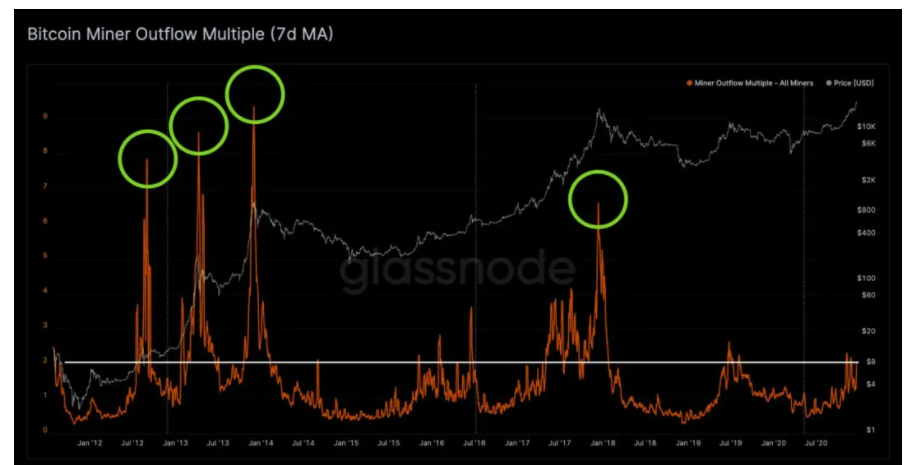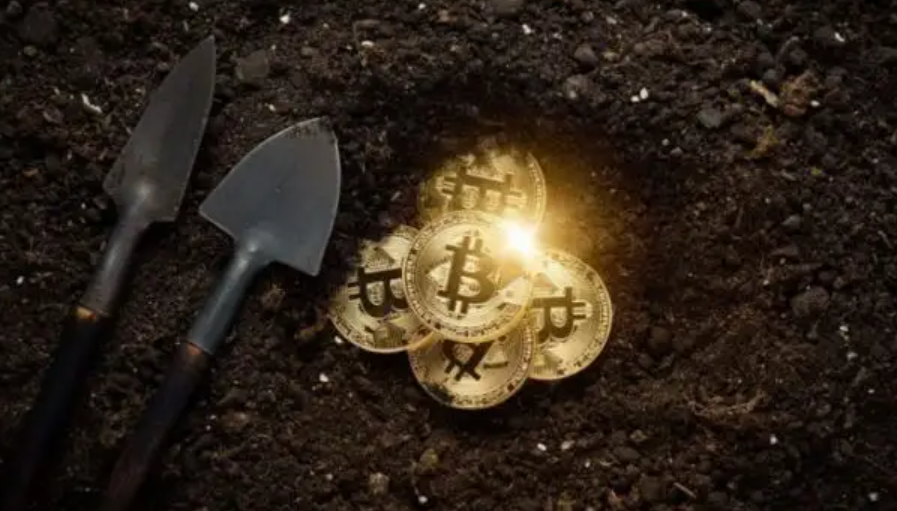Normally we think that when the price of Bitcoin (BTC) rises, Bitcoin miners will sell more Bitcoin. However, despite the fact that Bitcoin has made new all-time highs (ATH) several times in the past year, miners are not selling more Bitcoin than usual, according to on-chain data from sites like Cryptoquant and Glassnode. On-chain researchers from Glassnode explained that miners, who benefit from the nature of mining with cloud arithmetic, do not spend more than usual during periods of record highs in coin prices.
"Despite the recent rally, bitcoin miners are not spending more BTC compared to usual," Glassnode said Tuesday. "The miner outflow metric shows a high outflow of bitcoin miners relative to its historical average, and it is far from previous highs and even below the 2019 highs."

Bitcoin miners have been making significant profits since the halving and bull market a few months back. Prior to the halving, it was expected that miners would need the bitcoin price to stay at $12,500 to get the level of profitability they had before the halving to break even.
The network-wide arithmetic power level is now very high at 139 exahash per second (EH / s), and these hash rates are provided by 14 bitcoin mining pools around the world. With the current bitcoin price over $23,000, bitcoin miners, even older generation miners like the S9, are making relatively significant profits.
There are already 18,579,969 BTC in circulation worldwide today, which is 88.48% of the total supply of 21 million so far. BTC's annual inflation rate remained above 3.6% until it was halved in May 2020, and after experiencing the halving Bitcoin's annual inflation rate has dropped significantly to 1.78%.
Miners are finding an average of $20,961,900 worth of BTC per day in 144 blocks (at today's exchange rate). Yesterday, 147 BTC blocks were found at a rate of 6 blocks per hour over the past two weeks, and the total production of miners worldwide is currently around 918 bitcoins per day.

While the two-week average for bitcoin block rewards is $146,046 per block, the total average cost per block is 0.81 BTC or $18,837. for a longer period of time.
In addition to data from Glassnode, miner outflow statistics from Cryptoquant show that bitcoin miner selling has not increased significantly due to such a high BTC price. cryptoquant tracks data from major BTC mining pools, including Antpool, Poolin, Btc. F2pool, Viabtc, Slush, Dpool, Bytepool, and other smaller, unknown mining pools.
Farmit believes that in addition to the price of coins, adjustments to the mining model have a direct impact on miners' behavior. Regardless of the price of the coin, miners will always sell bitcoin or other digital assets to pay for mining electricity and other overhead costs within a certain period of time, which usually does not exceed one quarter.
This has resulted in most self-mining miners not being able to concentrate on cashing out during the golden weeks of the bull market.
Nowadays, miners are able to store their coins because of the popularity of cloud computing. The cloud computing mining model adopts the wholesale payment method, which is a one-time payment of the cost of the computing cycle, and miners can get the full amount of computing output and store their coins during the mining cycle, waiting for a better time to sell. Statistics show that cloud computing miners do not have the pressure of paying electricity bills, and they usually have more autonomy to choose.
At a better time, cloud computing miners can realize 50% more than the average miner, which greatly hedges the advantage of general mining income.
It is foreseeable that the comparative advantages between cloud computing miners and self-mining are getting closer and closer after the hedging of actual conditions, and the trend of cloud computing advantages becoming more and more prominent instead of self-mining is becoming more and more obvious.
Farmit is committed to improving the competitiveness of miners with higher quality cloud computing power so that miners can keep their coins and make the final actual revenue of cloud computing power mining higher.
